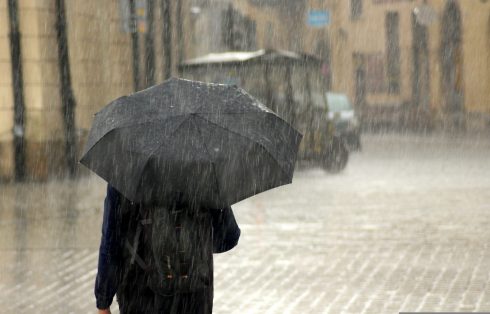MALAGA is turning away from property sales to non-Spaniards.
The city council is cancelling plans to build 1,300 tourist homes and is contemplating a ‘total ban’ on the sale of land to anyone who is not a native Spaniard.
The mayor of Malaga, Francisco de la Torre, has announced that a new measure is being considered within the framework of the General Urban Planning Document (PGOU). By law, every municipal council in Spain must publish a PGOU – a town planning scheme that allocates land for housing, industrial units, and other uses.
Malaga City Council continues to introduce tougher measures to curb the construction and acquisition of tourist housing. Following several interventions last year, including modifications to the PGOU, De la Torre said, somewhat surprisingly, that “a global moratorium” is under consideration.
The proposal, which must be approved at a future Local Government Board meeting—no date has yet been set—represents a further step in the measures already adopted. These include prohibiting the authorisation of new holiday apartments in 43 neighbourhoods of the Costa del Sol’s capital.
READ MORE:
- Property prices rose by 8.4% last year in Spain in biggest increase since 2007
- Foreign buyers accounted for HALF of all property sales in Alicante last year
- Malaga’s tourism industry struggles to find workers due to surging rent and property prices
De la Torre indicated that the municipal strategy implemented so far has led to a significant reduction in the number of registered holiday homes. “We are a municipality clearly committed to this; we are also trying to understand the exact statistics,” he explained. Malaga now has the authority to prohibit the opening of new holiday apartments in many neighbourhoods, such as Centro, La Merced, and Malagueta.
He also referred to the hiring of a specialist company to provide accurate data on the sector and the number of properties currently in operation. One objective is “to identify the number of illegal holiday homes.” He described the study as “a kind of compass to guide us on this issue,” while also praising the reduction achieved so far.
Regarding the proposed moratorium, De la Torre explained that the General Urban Development Plan (PGOU) is under review. “We want to know how many tourist homes there are, where they are located, how many new tourist apartments have been opened, what land has been taken up by tourist rentals and hotels, and where these developments are concentrated. We want to determine how tourism can be made compatible with everyday city life. We need to decide whether guidelines should be established to ensure a balance,” he added.
The tide may be turning against foreign buyers looking to purchase property on the Costa del Sol. British buyers are particularly vulnerable post-Brexit, as Dutch, German, and French citizens retain rights as EU nationals, whereas Britons do not.
Some may recall the ‘bulldozing’ controversy in Marbella about 15 years ago. Unscrupulous developers bribed councillors to draft a PGOU permitting the construction of new properties in barrancos, or flood channels. When the Madrid government became aware of this, it ordered the demolition of the ‘irregular’ properties. Overseas buyers were severely disadvantaged, as no one had explained to them that, in Spain, owning a house and owning the land it stands on are two separate legal concepts. The Spanish government argued that homes built in barrancos do not acquire any legal rights, as flood zones are specifically designated as unsuitable for dwellings.
Concerns are now growing over the mayor of Malaga’s focus on ‘legality.’ There is apprehension that Malaga City Hall or the Madrid government could begin altering the PGOU and reclassifying some areas of land. Observers suggest that recent protests against guiris (foreigners) have made local politicians cautious. For 60 years, foreigners have been welcomed to the Costa del Sol due to their economic contributions. However, in recent months, protests have emerged claiming that the influx of foreign buyers has driven up property prices, making housing less accessible for native Spaniards.
Government figures indicate that 350,000 non-Spaniards reside on the Andalusian coast, with seven out of every 10 newcomers being foreigners.
Click here to read more Malaga News from The Olive Press.








